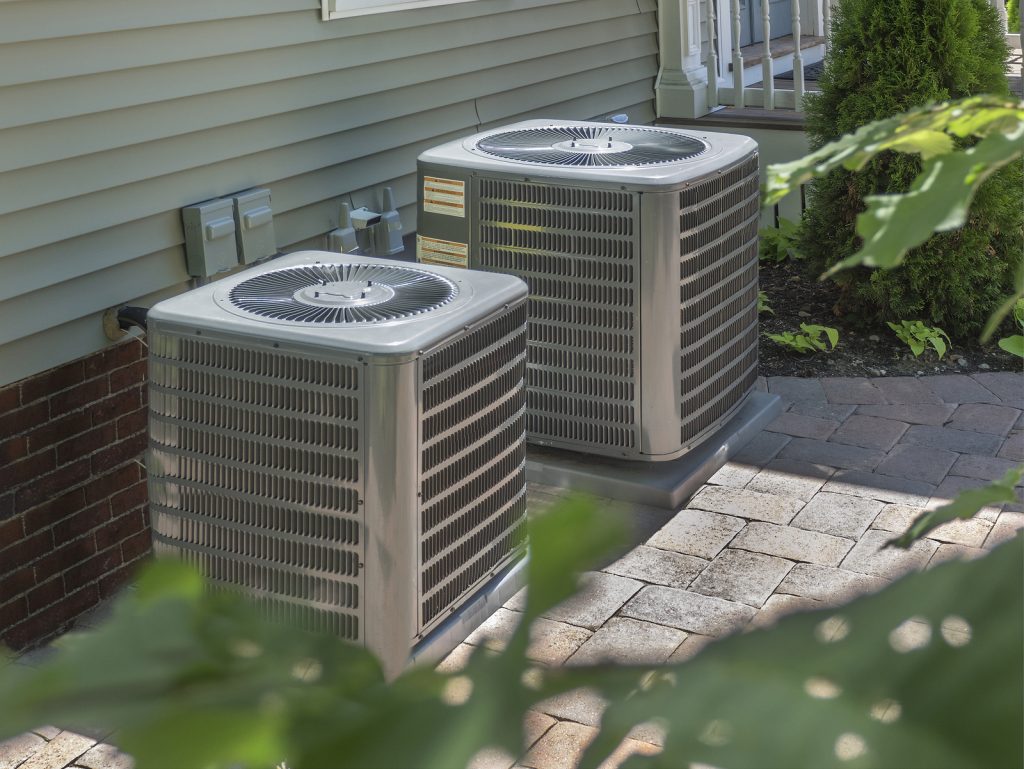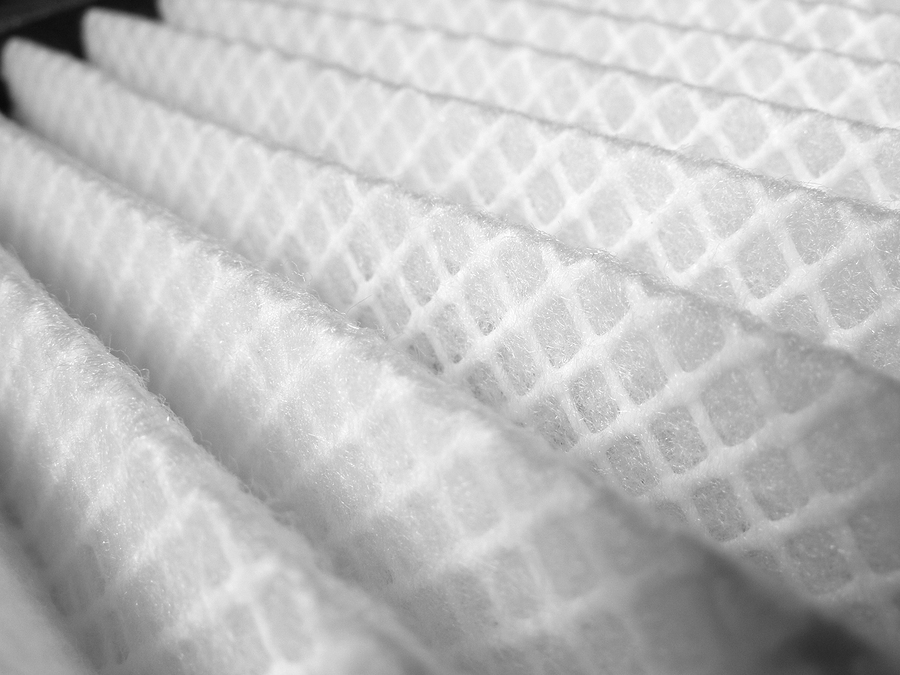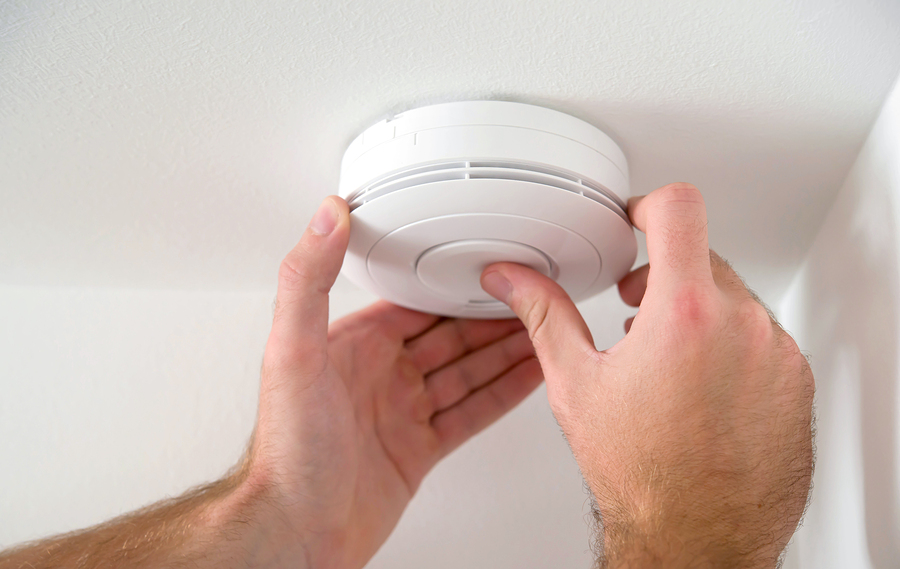How a Ventilator Can Improve Your Indoor Air Quality
If you have discovered that your air quality is not as high as you would like it to be. The reason could be odors lingering in rooms where they aren’t expected or mold, dust and other common air quality problems.
Many homeowners, especially those with small children, may want to take steps to improve the air they breathe inside their homes. But what can be done to improve indoor air quality? Many homeowners are considering ventilators to increase air flow throughout the home. These devices can solve many indoor air quality issues.
Ventilation Basics
The Environmental Protection Agency recommends improving a home’s ventilation by increasing air flow. Leaving a door or window open will bring in outside air, but many homeowners, understandably, don’t like to do that. After all, propping open doors or windows can let precious (and pricey) cool or warm air leak out and allow insects and other pests to come in.
But it’s important for homes to have some kind of ventilation. In a tightly sealed home, you’ll be living with continuously stale air, where odors, natural gases and chemical vapors can build up. Fortunately, ventilators are an easy way to improve air quality, cut down on odors and provide fresh air.
How Do Ventilators Work?
Ventilators exhaust stale indoor air and replace it with fresh, conditioned outdoor air. This breaks up the number of pollutants in certain areas of your home where they tend to linger. By regulating air flow, ventilators can ensure that any source of pollutants or allergens in your home will not be too concentrated in a certain area. This can help homeowners concerned about mold, certain types of dusts or pet hair that may accumulate and make certain rooms dusty or dank.
Should You Get a Ventilator?
ventilators typically don’t rank high on a homeowner’s to-do list. However, ventilators can dramatically improve the airflow throughout a home and the quality of that air. Ventilators are especially beneficial in homes where the elderly, children or people with compromised health live due to improved air quality.
If you want to improve the air quality of your home, boost energy efficiency or upgrade your heating and cooling system, contact Cox Heating and Air Conditioning today. They are a trusted HVAC company, serving the area since 1958.
Considering a New HVAC System? Winter May Be the Perfect Time
Your HVAC system may be more complicated than you think. Most have both heating and cooling components (an air conditioner and a furnace) plus a system of ducts and thermostats to provide air flow throughout your house. An effective HVAC system is vital to a comfortable home. If something goes wrong, you need to address it immediately. Repairing an HVAC system can be an intimidating prospect, and, in some cases, a new HVAC system is the best answer.
Replace and Repair in the Fall or Winter
There are a number of reasons fall or winter may be the best time for inspecting your system, repairing your current system or getting a new HVAC unit. First, taking care of any leaks or inefficiencies in your air distribution system will ensure that you maximize energy efficiency throughout the winter. This can save you money on heating bills. Further, air companies may be in less demand during the cooler months.
How to Know When to Replace
If your HVAC system was not keeping up with warm weather during the summer, it likely won’t keep up in the cold weather either. The size and condition of your system may mean that it’s time to revamp it. The system can be too small, meaning you are not sufficiently heating and cooling your home year-round. Or it can be too large and costing you money on inefficient heating and cooling energy. If you live in a humid area like Tampa, the wrong-sized system will not balance humidity levels properly. Finally, if your heating and cooling costs seem too high, it might mean it’s time to upgrade to a new HVAC system that is more efficient. A professional HVAC specialist will be able to test your system to see which solution is best for you.
Preventative Maintenance
Your HVAC system also requires regular maintenance. Purchasing a Maintenance Service Agreement is the best way to ensure your HVAC system is properly maintained year-round. During routine maintenance appointments, your HVAC technician will replace filters, remove any debris, clean condenser fan blades and many other necessary tasks. IN addition to keeping your system running well during both hot and cold weather, routine maintenance can save you money in the long run and may help you avoid costly emergency repairs.
Don’t get left out in the cold if you need to revamp or repair your home heating system. The professionals at Cox Heating & Air Conditioning in Tampa can help.
Choose the Right Air Filter for Your Home
If you’re not familiar with air filters, you are not alone. Though important, they are a frequently overlooked part of your HVAC system. Below, we’ve compiled some information about what air filters are, what they do for your home and how you can choose the right one.
What Do Air Filters Do?
The air filter in your household heating and cooling system helps keep the air in your home clean and free of dust and other nasty particles. Internal air quality in your home can vary greatly depending on a number of factors, such as the health of your home air system, pets, level of dust and weather conditions in your area. The right filter can save you money on electricity and improve the air quality in your home.
Different Types of Air Filters
Four types of filters are found frequently in home HVAC systems. The first is the fiberglass filter, which is layered to filter air and held in a metal frame. Polyester and pleated filters have the same basic design but tend to feature better dust-blocking capabilities than their fiberglass counterparts. High-efficiency particulate arrestance (HEPA) filters take out 99.7 percent of all particles. Washable filters are less common but don’t have to be replaced.
Filter Maintenance and Replacement
You should check your air filters once a month and have a professional look at them twice a year. If the filter is damp, dusty or moldy, it’s time for a new filter. But it could also mean that your current filter is not doing a good enough job for your system. Properly maintaining filters will help keep your system running cleanly, but if you aren’t using the right kind of filter, you may have to replace them more often. Using improper air filters can even cause damage to other parts of your system, such as heating coils and fans, if they are not collecting enough of the particles in the air.
Choosing the Right Filter
The type of filter you need depends on the size of your home, the length of use and the weather in your area. If you have a large family, pets or people with allergies in your home, you may need even stronger filters. A professional can tell you which filters are best-suited to your needs by taking a look at the condition of your central air system.
Why You Should Upgrade Filters
Indoor air quality affects your health and your comfort. Poor indoor air quality can be an environmental risk, compounding problems with allergies and respiratory illness. Hiring a professional to check out your air filters ensures that you have the right fit, which means you will have to replace filters less often and your home air system will last longer. Getting better filters will reduce pollutants in your air and save you money on electric bill through increased energy efficiency.
If you want to hire a pro to simplify the process, look no further than Cox Heating & Air Conditioning. We can help make your home cheaper to maintain, safer and more comfortable.
5 Tasks to Complete When Turning on the Heat This Winter
Now that winter is officially here in Florida, it’s time to consider your heating system. While you may not need to heat your home that often during our mild winters, it’s still a wise idea to ensure the system is in good working order.
Before turning on the heat this winter, even if you’ll only be using the system occasionally, perform a few simple maintenance tasks.
The following steps will help guarantee that your heater works well when you need it.
1. Check for Adequate Clearance
Many heating units are located in attics or garages where items may be temporarily stored without much thought during the summer months. Take a good look around the furnace or heat pump and make sure there isn’t anything obstructing airflow before turning on the heat.
During inspection, it’s also important to remove any potentially combustible items from the vicinity of the heater, such as paper products or chemicals like cleaning fluids.
2. Clean the Unit Exterior
Vacuum the heater and the surrounding area. Use a soft brush attachment and clean up any dust from accessible parts of the heater. In addition, vacuum around the heater so that once you turn the unit on the filter doesn’t absorb stray dirt and dust.
3. Replace or Clean the Air Filter
For optimum efficiency and to preserve the integrity of your HVAC system, make sure that your heater’s filter is free of debris and dust. Dust-free filters will ensure an even, fresh airflow.
If the furnace has a replaceable filter, it’s often best to exchange it with a new one before turning on the heat. Check the size on the current filter or the owner’s manual. If the filter is reusable, remove dust and debris buildup with a vacuum cleaner and then wash the filter out with soap and water. Rinse the filter well and let it dry thoroughly before reinstalling.
4. Test Your Carbon Monoxide Detectors
Now is an ideal time to ensure that all carbon monoxide detectors in your home are working properly. If they’re battery operated and it’s been a while since you changed the batteries, do so now. Once you run the heater, if the carbon monoxide detector ever goes off, immediately turn off your heater, open the windows and call an HVAC professional for an assessment.
5. Consider Getting a Preventative Maintenance Check
Many furnace manufacturers recommend getting your heating system checked and serviced once a year. The ideal time to have an HVAC professional inspect your system is before you need to turn it on. During the inspection, your heater will be checked for any leakage and blockage in the venting system. The technician will also ensure that the heater is igniting safely.












Recent Comments